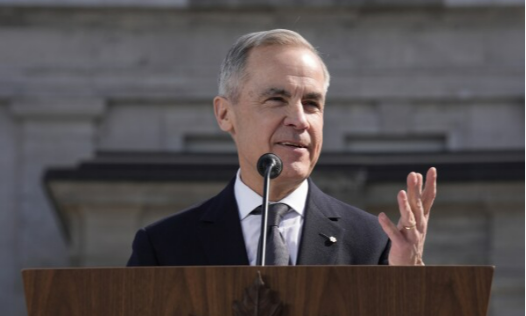Payment is being processed. Please do not refresh or close this page until your payment is complete.
 Book an Appointment
Book an Appointment

Mark Carney, former Governor of the Bank of Canada and a prominent figure in Canadian politics, has recently pledged to increase francophone immigration to 12% in regions outside Quebec if elected.
This announcement is being seen as part of his positioning ahead of a potential federal election run, possibly as leader or a major figure within the Liberal Party.
Key Points of the Announcement:
1. Target of 12% Francophone Immigration Outside Quebec
• Carney aims to raise the proportion of French-speaking immigrants settling outside Quebec to 12%.
• Currently, the number is significantly lower — hovering around 4.7% in 2022, far below the federal government’s long-standing target of 4.4%, which was only recently achieved for the first time.
• The new 12% target represents a tripling of the goal, indicating an aggressive shift in policy priorities.
2. Why It Matters
• Francophone communities outside Quebec (such as in Ontario, Manitoba, and New Brunswick) have seen declining French-speaking populations, raising concerns about the long-term survival of francophone culture in those regions.
• Enhancing francophone immigration is viewed as crucial to preserving linguistic diversity, promoting inclusion, and meeting labor shortages in key sectors like healthcare, education, and technology.
3. Political Context
• Carney’s pledge comes as he is increasingly rumored to be preparing for a political role, potentially challenging or succeeding Justin Trudeau in future Liberal Party leadership.
• Immigration and bilingualism are hot-button issues in Canadian politics, and taking a strong stance on supporting minority language communities may help Carney gain traction with both centrist and progressive voters.
4. Implementation Challenges
• Attracting more francophone immigrants requires:
o Better recruitment strategies in French-speaking countries (e.g., parts of Africa, Europe).
o More support for francophone integration services outside Quebec.
o Incentives for employers to hire and retain French-speaking workers.
5. Reactions
• The francophone community and advocacy groups have generally welcomed the pledge, viewing it as long overdue.
• Critics, however, question whether this is a realistic or politically motivated promise, given the complex logistics of immigration and provincial jurisdiction over some services.
Source :- https://immigrationnewscanada.ca/mark-carney-2025-immigration-plan/